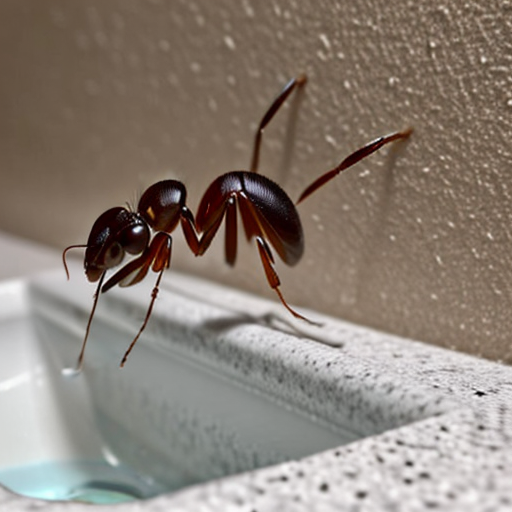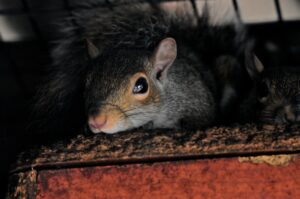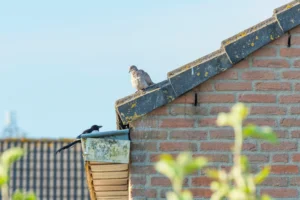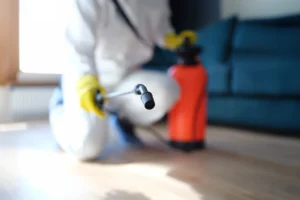Maintaining a home free from ants in Colorado demands a combination of preventive measures and proactive steps. Here, we present ten highly effective strategies to safeguard your home against ants while integrating the unique climate of Colorado:
- Impeccable Cleanliness and Sanitation: Routinely cleanse your home, paying meticulous attention to areas where food is prepared and consumed. Thoroughly wipe down countertops, meticulously sweep floors, and diligently vacuum carpets to eliminate food crumbs and spills that allure ants. In the climate of Colorado, where dry conditions prevail, it is crucial to promptly remove any food sources that may entice ants.
- Appropriate Food Storage: Safeguard your food by storing it in hermetically sealed containers crafted from glass, plastic, or metal. This impedes ants from detecting and accessing potential food sources. Refrain from leaving uncovered food on countertops or in open packages, as this can act as a magnet for ants, especially in the arid climate of Colorado.



An ant can come out of nowhere, is your home protected?
- Seal Entrances: Conduct a comprehensive inspection of your home to identify potential points of entry for ants. Employ caulk or weatherstripping to seal crevices or fissures in windows, doors, and foundation walls. Pay close attention to areas where utility lines penetrate your home and ensure they are effectively sealed. By undertaking these measures, you fortify your home’s defenses against ant intrusion, even in Colorado’s varied climate.
- Eradicate Water Sources: Eradicate stagnant water and excessive moisture both inside and outside your home. Timely repair any plumbing leaks, ensure proper drainage, and exercise moderation while watering plants. Ants are particularly attracted to moisture, so reducing water sources in Colorado’s semi-arid climate serves as a deterrent.
- Prune Vegetation: Regularly trim trees, shrubs, and bushes that come into contact with or are in close proximity to your home. Ants often employ vegetation as bridges to access your house. By establishing a clear perimeter, you decrease the likelihood of ants using plants as entry points, even in Colorado’s diverse climate.
- Natural Repellents: Utilize natural repellents to discourage ants from entering your home. Various substances such as vinegar, lemon juice, cinnamon, or peppermint can disrupt ants’ scent trails, deterring them from venturing inside. Spritz vinegar or lemon juice near entry points or strategically place cinnamon sticks or cotton balls infused with peppermint oil in areas prone to ant activity, providing a natural deterrent that is environmentally friendly in Colorado’s eco-conscious climate.
- Meticulous Pet Bowl Hygiene: Ants are attracted to pet food and water bowls. After each feeding, diligently clean your pet’s bowls and meticulously wipe up any spills or crumbs. In Colorado’s climate, where water scarcity may be a concern, consider placing the pet bowls in a shallow dish of water, creating a moat that ants cannot cross.
- Eliminate Outdoor Food Sources: Maintain cleanliness in outdoor areas, eliminating any potential food sources that may lure ants. Thoroughly clean barbecue grills, picnic areas, and outdoor dining spaces after use. Ensure trash cans are securely sealed and kept at a distance from the house. Regularly dispose of garbage to prevent ant infestations, even in Colorado’s varying weather conditions.
- Repair Cracks and Leaks: Conduct regular inspections of your home to identify cracks in walls, foundations, and pipes, as well as any plumbing fixtures that may leak. Promptly address and repair any damages to eliminate potential entry points and moisture sources that could attract ants, even in Colorado’s challenging climate.
- Professional Pest Control: Don’t feel bad! Even the cleanest house can have these sneaky insects crawling around inside. In the event of a persistent ant problem or an infestation that proves difficult to control, consider engaging professional pest control services. Pest control experts possess the expertise and tools necessary to identify ant species.




